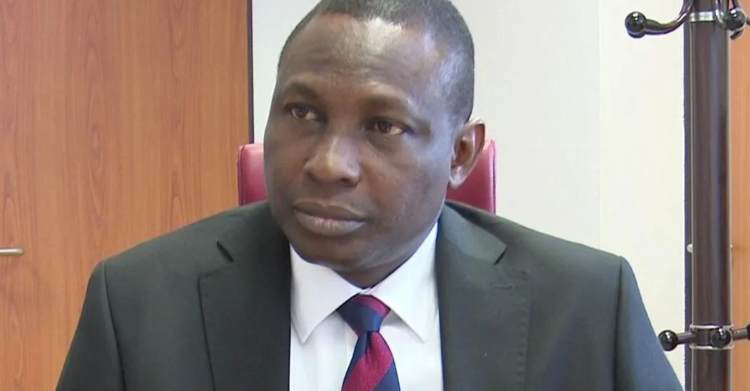Ola Olukoyede, the Executive Chairman of the Economic and Financial Crimes Commission (EFCC), has expressed deep concern over the persistent lack of compliance with established rules, regulations, and best practices across Ministries, Departments, and Agencies (MDAs) in Nigeria, describing it as a major enabler of corruption.
Speaking on Tuesday, April 29, 2025, during a courtesy visit by a delegation from the National Agency for Science and Engineering Infrastructure (NASENI) led by its Executive Vice Chairman, Khalil Halilu, at the EFCC headquarters in Abuja, Olukoyede emphasized the widespread nature of non-compliance in both the public and private sectors.
“If there’s anything most of our MDAs are lacking, it is compliance. We don’t comply, and that’s a serious problem. There’s a lack of compliance in contract awards, management procedures, and financial regulations. Once there’s a breach, it opens the door to exploitation and corruption. Others who observe these lapses will take advantage to commit even greater wrongs,” Olukoyede said.
He praised NASENI’s leadership for initiating the development of a Corruption Risk Assessment (CRA) and Standard Operating Procedure (SOP) in partnership with the EFCC. However, he stressed that these tools can only be effective if they are implemented in good faith.
“CRA is important, but it will only be effective if people are ready to embrace change and follow due process. I commend your courage and the achievements you’ve made during your tenure,” he added.
In response, NASENI’s Executive Vice Chairman, Khalil Halilu, expressed gratitude to the EFCC for its support and reiterated the importance of institutional collaboration in fighting corruption.
“One of my first actions upon assuming office was to invite the EFCC to assess our processes and procedures, to help us improve them and strengthen accountability. We are here today to express our gratitude and seek the continuation of this relationship,” Halilu said.
The CRA and SOP project commenced in 2022 and involved a joint team of nine EFCC officials and ten NASENI staff. The process culminated in late 2024 with the production of a detailed 1,900-page SOP, divided into 45 booklets.
Describing the project as a landmark achievement, Halilu concluded: “This is a great achievement for NASENI. We appreciate the EFCC for deploying nine of its best officers to evaluate our systems and provide guidance on preventing corruption. We are committed to sustaining this collaboration.”


